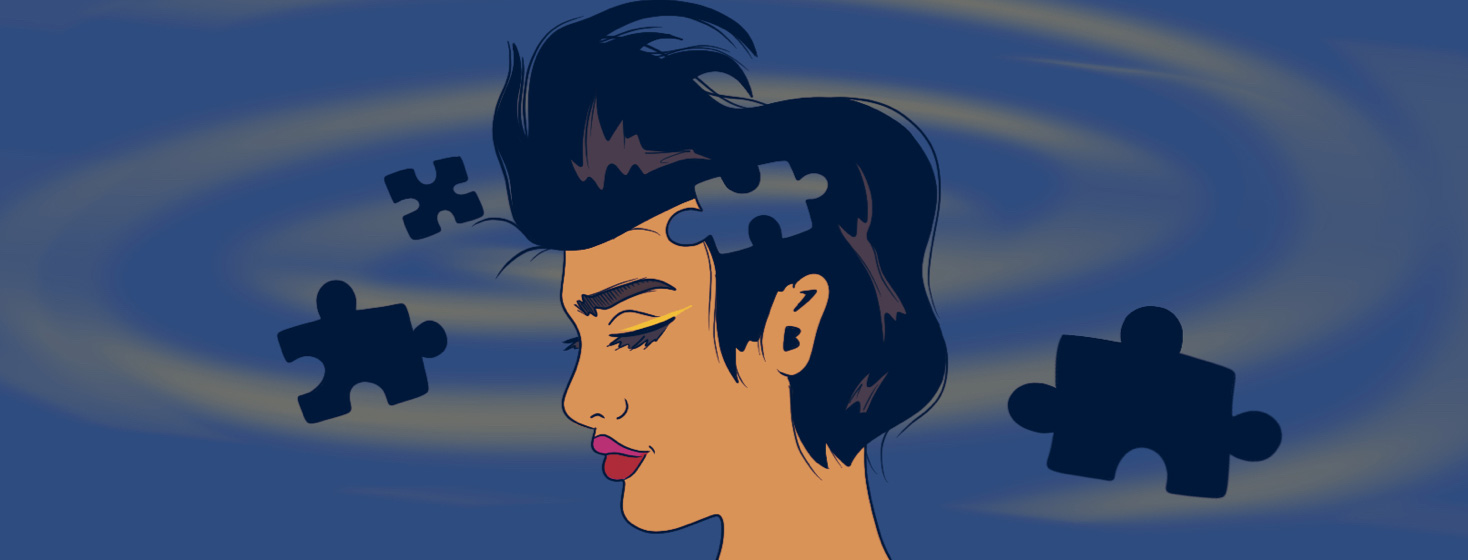Bipolar Attention and Memory Issues: Why They Happen and How to Cope
Bipolar disorder can have a wide range of symptoms, and not everyone with bipolar has the same experience. But for many with bipolar, the condition affects their ability to think, focus, or remember things. This can make daily tasks challenging. It can also affect employment.1,2
People with bipolar are just as smart as people without bipolar. But issues with attention and memory can affect this. Understanding the symptoms of attention and memory issues can help you better manage or treat these difficulties.1,2
This or That
Do you feel the impact of bipolar disorder on your memory?
How common are attention and memory issues in bipolar disorder?
Many people with bipolar notice issues with cognitive functions. This includes thinking speed, attention, memory, and problem-solving. Studies suggest that:1,3
- About 1 in 2 people with bipolar have issues with 1 cognitive function
- About 1 in 3 people with bipolar have issues with 2 cognitive functions
- About 1 in 5 people with bipolar have issues with 3 or more cognitive functions
Why does bipolar disorder cause attention and memory issues?
We do not yet know why people with bipolar have attention and memory issues. Problems happen because of changes in the brain. These can involve changes in:2,4
- The prefrontal cortex, which plays a role in planning, attention, problem-solving, and memory
- The hippocampus, which plays a key role in storing memories
- The anterior cingulate cortex, which plays a role in emotional and cognitive functions
Memory loss tends to be worse during mood episodes. The strongest risk factor for cognitive issues is the number of past mood episodes. Other factors also play a role in attention and memory issues. These include:2,4,5
- Alcohol use disorder (AUD), which affects 30 to 50 percent of people with bipolar
- Attention-deficit/hyperactivity disorder (ADHD), which affects 15 percent of people with bipolar
- Medication side effects
- Genetics
What are the symptoms of attention and memory issues?
Attention and memory issues can happen at any time. Some people with bipolar report that issues happen during mood episodes. Other people with bipolar have issues even when their mood is stable. For many people, cognitive issues start early.1,4
Attention involves a number of processes that work together. Issues can occur with any process, such as:1,6
- Working memory – being aware of a few mental objects for a limited time
- Vigilance – focusing on one thing among other stimuli
- Concentration – maintaining attention over longer periods
- Splitting or rapidly shifting attention
Memory is the mental process that allows us to recall information later. People with bipolar may have issues with different types of memory. Some examples include:1,6
- Verbal memory – remembering words
- Declarative memory – recalling and explaining past events
- Procedural memory – memory for motor actions or skills
- Prospective memory – remembering to do future tasks
How do attention and memory issues affect daily life?
Attention and memory issues have a large impact on daily life. They can make it harder to manage bipolar by remembering to take medications. Memory loss can make social relationships and employment difficult. Cognitive issues are a major reason why people with bipolar are less likely to be employed.7
Cognitive issues also affect self-perception. Many people with bipolar underestimate their own abilities. This can lead to avoiding tasks or changing behaviors. Improving your self-perception can help improve daily functioning.8
How are attention and memory issues treated?
Treatment starts with preventing mood episodes. Each episode you have increases the risk of cognitive issues. Talk to your doctor about medication and other treatment options to manage bipolar.2
Some bipolar drugs can cause memory issues as a side effect. For example, lithium may affect productivity and creativity. If this is the case, your doctor may lower your dose or switch you to another drug.1,2,9
There is not much evidence for drugs that treat attention and memory. Galantamine, pramipexole, or mifepristone may have benefits. Electroconvulsive therapy (ECT) may improve cognitive function. Certain types of therapy, such as cognitive remediation (CR), may have benefits.1,3,10
How can I cope with attention and memory issues?
Issues with attention and memory are hard to handle. Early diagnosis and good management can help reduce the burden. A good way to cope with these issues is to follow a consistent routine. Structure in your day-to-day life can make it easier to accomplish regular tasks.3
Daily exercise is an important way to improve memory. Aerobic exercise has the best evidence for improving cognitive function. Any exercise is likely to improve memory and stabilize mood. Other tips for coping include:2,3,11,12
- Using calendar reminders and alarms for appointments and medications
- Keeping a diary or journal to record things you want to remember
- Making to-do lists or keeping a calendar to plan tasks
- Placing notes with reminders in strategic places
- Keeping a chalkboard or whiteboard nearby to write reminders
- Keeping important items in the same place
- Getting enough sleep and eating a balanced diet
- Practicing stress-reducing techniques
- Avoiding alcohol
Talk to your doctor if attention and memory issues are impacting your daily life. They can help figure out the cause and develop a plan to manage or treat these issues to improve your quality of life.
